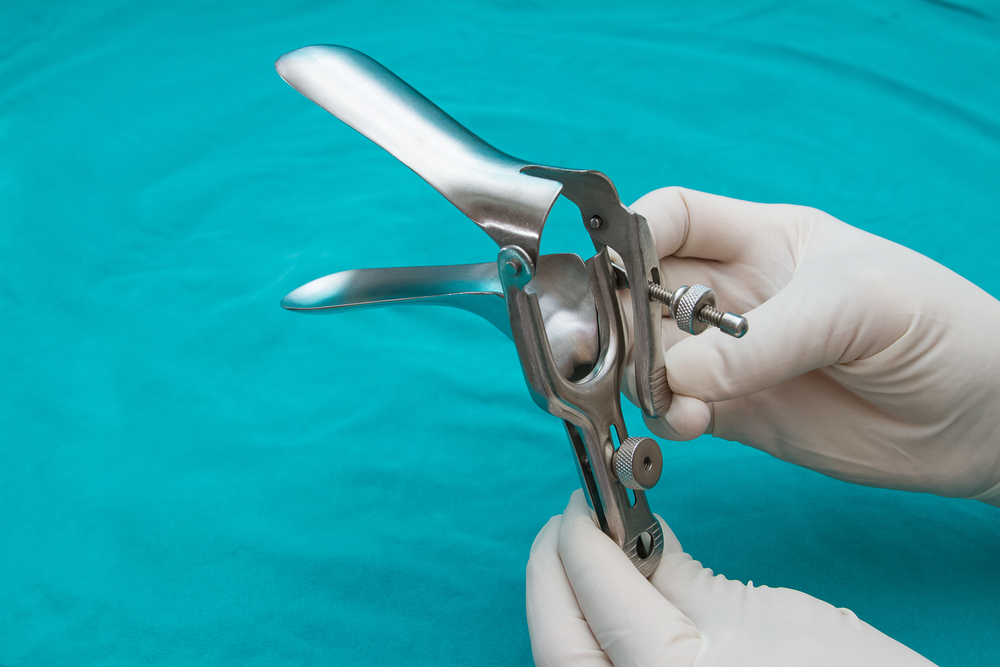Should I Get An IUD?
Published on 06/24/22
IUDs are generally a very easy and convenient form of birth control for the majority of people. IUDs provide all the benefits of birth control without any of the extra effort other methods may require from you.
What Are IUDs and How Do They Work?
IUD stands for Intrauterine Device. This device is small and flexible, built in the shape of the letter ‘T’. IUDs are offered and used by OBGYNs as an alternative to other birth control methods to prevent pregnancy. They are designed to be inserted into the uterus and remain there for many years. However, if pregnancy eventually becomes the goal, the IUD device can be removed at any time. Once the IUD is removed, fertility returns immediately.
There are two types of IUDs to choose from: non hormonal and hormonal IUDs. Both of these IUD types are just as effective as the other. Both have been proven to be more than 99% effective at preventing pregnancy. Your preference in one or the other is going to be dependent on you and your body’s needs.
Non hormonal IUDs
Non hormonal IUDs are made of copper which is a natural spermicide. Natural IUDs like ParaGard – the only non hormonal IUD proven safe by the FDA – can last for up to 12 years in the uterus. Protection from pregnancy is immediate after insertion.
Hormonal IUDs
The most common IUD is the hormonal IUD. These IUDs were developed to release small amounts of the hormone progestin. Progestin prevents eggs from leaving the ovaries. It also helps to thicken the cervical mucus, this is meant to prevent the sperm from getting through. After insertion, hormonal IUDs start preventing pregnancy in one week and can last anywhere from 3 to 7 years in the uterus.
The Insertion Process
When the doctor prepares for placement of the IUD, it begins similar to a normal pelvic exam. A metal instrument – the speculum which is also used in pelvic exams – will be used to allow access to your cervix. The IUD is then placed in a small tube and inserted into the cervix. The ‘T’ shaped IUD is folded in the tube and when in proper placement, the arms open in the uterus. This entire process can happen in a matter of minutes.
During insertion, most might feel mild discomfort or cramping, very few feel pain. If there is pain, it only lasts a moment. The doctor may recommend taking Advil or Motrin before and after to alleviate any additional discomfort during and after the insertion appointment. It is also recommended that the insertion appointment be made to take place the last days of your period. These days are the best days to insert an IUD because the cervix is naturally open.
IUDs and the Menstrual Cycle
Hormonal IUDs, like other forms of birth control, can help to manage more severe menstrual symptoms. Symptoms like heavy bleeding and additional cramping being some of the most common. Actually, IUDs can be made to help stop menstrual cycles altogether.
In contrast, copper IUDs don’t accommodate side effects the same as hormonal IUDs. Copper IUDs might actually make your periods heavier and slightly more painful for a short period of time. This will work itself out however, and goes away over time.
IUD Stigmas
For a long time, IUDs have had a bad reputation because of the risks they pose. This is despite how we now know that modern IUDs are quite safe. As technology advances, these risks have become minimal. It is rare that they actually lead to complications like PID (pelvic inflammatory disease), malposition and perforation.
Malposition is when the IUD ends up in an abnormal position in the uterus. Whereas, perforation is where the IUD passes through the wall of the uterus entirely. Today, risks like perforation only happen in 0.01% cases.
Less serious risks that are uncommon but possible with hormonal IUDs are weight gain, acne, mood swings, and hair loss. Although these side effects don’t have a definitive link to hormonal IUDs, they’re up for probable cause. However, the amount of progestin that gets released into the body is much lower than that of birth control pills. This means the majority of women tolerate it well.
These risks are mitigated in current settings because doctors know how to avoid complications and can use ultrasounds to confirm the IUD position after insertion.
Most concerns date back to the 1970s where a lot of the current IUD stigma is rooted. At the time, IUDs were considered not effective at preventing pregnancy and caused serious pelvic infections due to major design flaws.
That being said, there are a few conditions that could make choosing an IUD complicated or a choice you might want to avoid. You may want to consider other forms of birth control if you:
- Think you might be pregnant
- Bleeding not related to your cycle
- Untreated cervical cancer
- Might have an infection or STD
- Have cancer of the uterus
- Have a bleeding disorder like WIlson’s Disease – meaning an allergy to copper
The Pros and Cons of IUDs
Regardless of IUDs, their stigma and old reputation, there are many benefits to the IUD that can help add ease to a person’s life. So much that you could say birth control pills or other forms of pregnancy prevention cannot compete.
Some of the Pros of using IUDs:
- They are more than 99% effective at pregnancy prevention
- Hormonal IUDs can alleviate painful periods to shorter and lighter periods
- It can be removed at any time and fertility returns immediately
- It lasts a long time, anywhere from 3 to 10 years – set it and forget it
- Minimal effort after the initial appointment
- Can be used in any age demographic
- IUDs have been known to reduce the risk of developing endometrial cancer
- IUDs can be used post delivery – although it is recommended to wait a small time frame
- Copper IUDs can be used as an emergency contracepion up to 5 days after a birth control failure or unprotected sex
However, there are potential cons too. Some of the cons of using IUDs could be:
- With initial insertion, no matter the type, the first few months may cause cramping or irregular bleeding – doctors may recommend pain management like ibuprofen. If the pain persists or gets worse, the doctor will need to be informed immediately.
- Insertion itself may be mildly or moderately painful
- If after three months, irregular bleeding and cramping that hasn’t resolved itself may result in the doctor putting the patient on an ibuprofen treatment. This treatment can last for one to three months, and help manage the pain and decrease any irregular bleeding.
- If the patient happens to get pregnant while on an IUD in the first year, the risk for ectopic pregnancy is higher.
- If the IUD is taken out, another procedure must take its place
- If the uterus is abnormally shaped, the IUD isn’t recommended since placing it can be more difficult and increase the risk of perforation.
Still Need Help Deciding?
If you are still unsure if you should get an IUD, here are a couple of questions to ask yourself. These may help you feel clearer in a decision one way or another. And, of course, discuss all your thoughts, complications, if any, and potential options with your healthcare provider. They can help guide you in the direction they think will be the most beneficial to you and your needs.
Questions to ask yourself:
- What are your periods like?
- Do you have heavy periods and should opt for a hormonal IUD instead of a copper one?
- What’s your time frame for getting pregnant? If it’s soon, maybe you need something a little more short term?
- Do you want a birth control with minimal effort? Or would you rather a method that gives you more immediate control?
Find Out If IUDs Are Right For You, Call Rosh Maternal & Fetal Medicine in NYC
To conclude all of this, IUDs are generally a very easy and convenient form of birth control for the majority of people. IUDs provide all the benefits of birth control without any of the extra effort other methods may require from you. In the end, it is a decision that should be made between you and your healthcare provider. This ensures all decisions are made to help best fit your needs.
Not sure if an IUD for birth control would be good for you? Talk to our team by phone or book an appointment online to get started. Call one of our six convenient NYC locations or schedule a video consultation online today about IUD for birth control. They’ve helped thousands of women. Come visit your NYC OBGYN.




